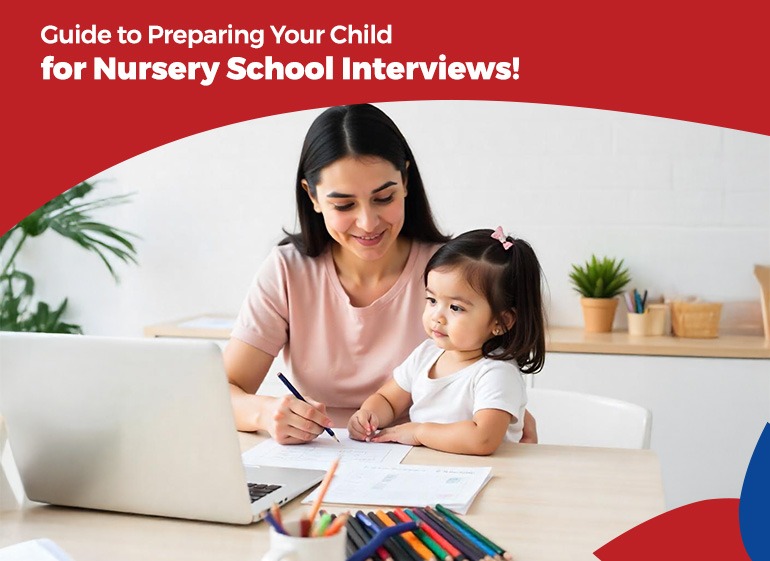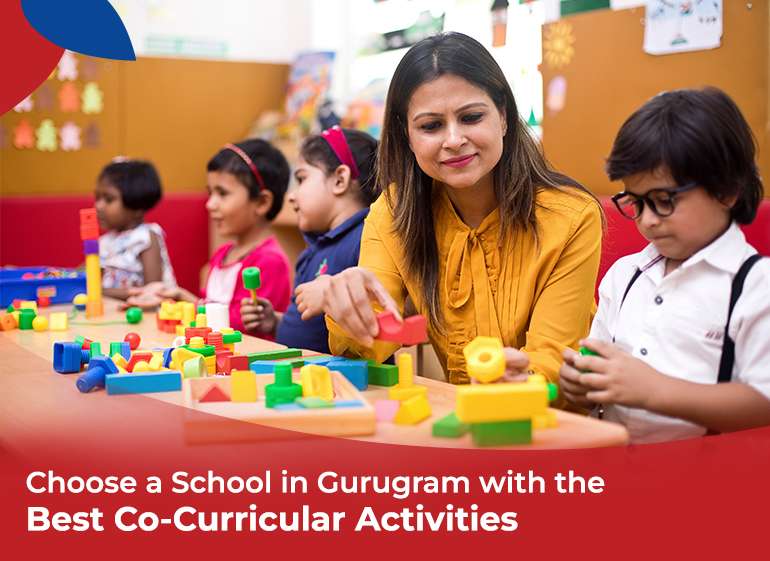Preschool is the first step toward learning. It builds a child’s foundation. All parents want the best school for their kids. However, the preprimary school admission process feels overwhelming. Early preparation may help ease the journey. It also makes the child feel more confident. A little practice will go a long way. Every school has a different process. Being aware of the format helps reduce anxiety. Some schools may have activity-based assessments. These activities test motor skills, following instructions, and teamwork. Parents should encourage learning activities at home. These include drawing or sorting household items. Examples include: Parents can practice these questions at home. Short practice sessions may help build comfort. It’s best to keep these sessions casual. Let the child answer naturally. Repeating questions in different settings also boosts confidence. A positive environment helps build self-esteem. Children may take time to open up. Role-playing can be another helpful tool. Pretend to be a teacher or a friend. This makes them comfortable with new situations. Parents can: Small conversations build confidence. It also makes them comfortable in different settings. Singing rhymes and asking questions afterwards can improve listening and speaking skills. Children learn better when conversations feel like play. Simple activities can help: Learning should be fun and engaging. Stress-free practice helps children remember better. Reading picture books aloud also helps with letter recognition. Children may not remember everything, but regular exposure makes a difference. Suggestions include: Positive reinforcement leads to good behaviour. Children learn quickly in a happy environment. Modelling these behaviours at home is also effective. Parents should show patience and kindness. Children often mirror what they see. Dos: Don’ts: Parents set the tone for a smooth experience. Children sense when parents are nervous. Staying relaxed creates a stress-free environment. Parents can: Practicing often builds confidence over time. Changing the setting during mock interviews can also help. Try practising while sitting on the floor or during snack time. This makes practice feel less formal and more playful. Conclusion: Ensuring a Smooth Admission Process Remember that every child is unique. Hence, the right support will make the journey smooth. Prepping with love and patience creates a happy learning experience.How to Prepare Your Child for Nursery School Admission Interview

Understanding the Admission Process: What to Expect
Parents should understand the process before applying. Schools usually have forms and interviews. Some schools may have group interactions. The goal is to assess basic skills. They also check how well a child adapts. Parents may have a short interview too.Common Interview Questions: How to Prepare Your Child
Children may be asked simple questions. They can include personal details. Questions about family, favourite colours, or toys are common. Some schools may ask about habits or interests.Building Confidence in Kids: Overcoming Shyness and Anxiety
Many children are shy around strangers. They avoid answering simple questions. This is normal. Confidence grows with time. Talking to older family members and relatives will help. Encouraging playdates can also improve social skills.Developing Communication Skills: Encouraging Simple Conversations
Good communication helps during interviews. Children should be able to express basic ideas. Simple conversations about daily activities are a great start. Storytelling or describing pictures can also help.Basic Academic Readiness: Colors, Numbers, and Alphabets
Preschools may assess basic knowledge. Children should recognise common colours. Counting from 1 to 10 may be asked. Knowing the alphabet can give them an edge.Behavioral Expectations: Teaching Patience, Sharing, and Listening
Preschools observe a child’s behaviour. Patience, sharing, and listening are key. These habits make group interactions smooth. Parents can teach these through daily routines.Parent’s Role in the Interview: Dos and Don’ts
Parents also play an important role. Schools observe how parents interact. Calm and supportive behaviour leaves a good impression. Staying positive helps the child stay relaxed.Mock Interviews and Practice: Making Preparation Fun and Stress-Free
Mock interviews reduce anxiety. They help children get familiar with the process. Practice sessions should be short and fun. Acting out a pretend interview can be exciting.
Preprimary school admission processes may seem daunting. Early preparation helps both parents and children. Small steps can build confidence and comfort. Regular practice will make a big difference.



